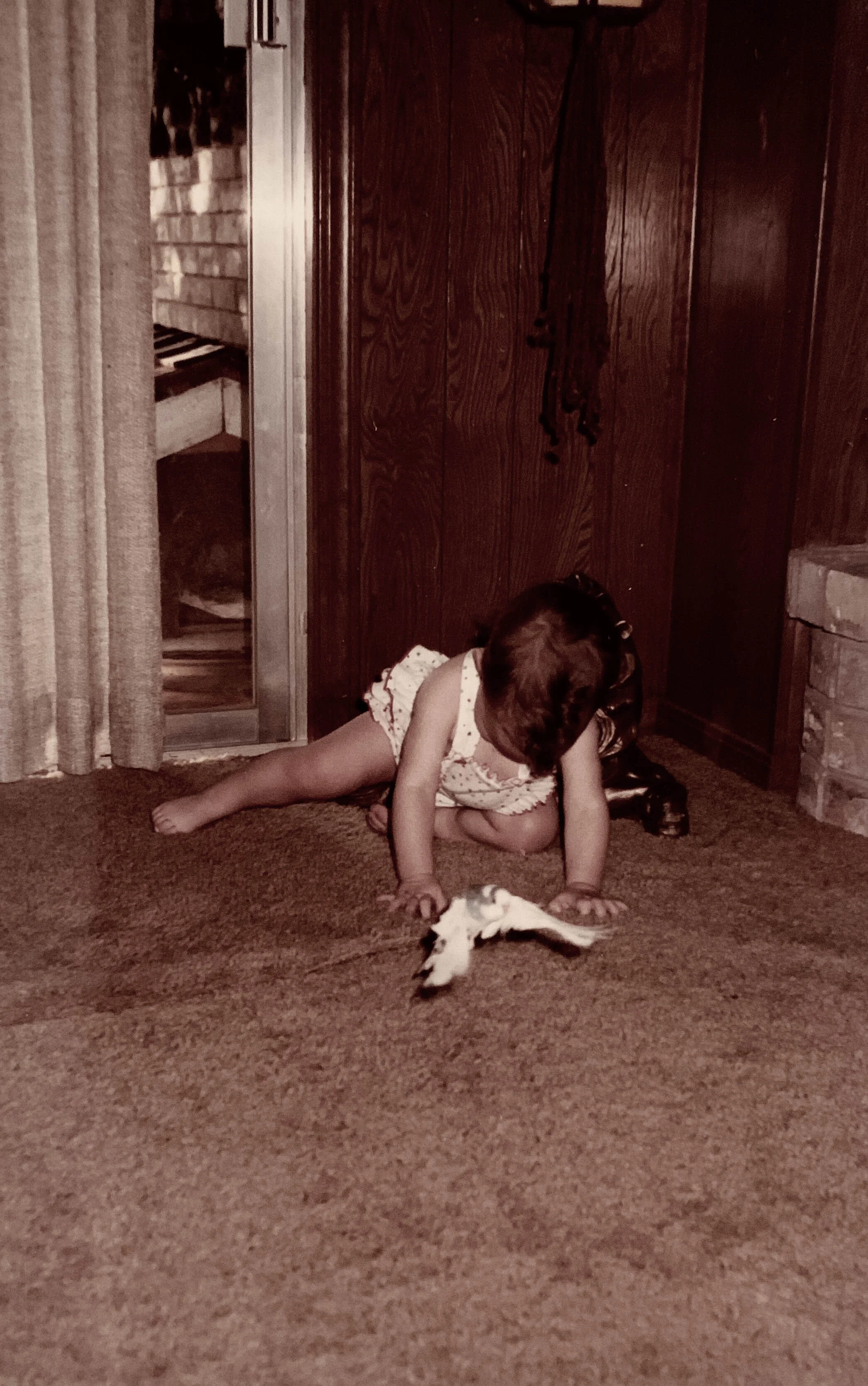
anima sola
Growing up, I spent most of my spare time outdoors, exploring the greenbelts of my suburban neighborhood alone. Within walking distance of my house was a fishing pond that no one fished, where I spent countless summer days wandering, eyes glued to the earth, searching for signs of life.
I once caught an enormous snapping turtle, mistaking his weight on my fishing line for a log. I dragged his heavy body onto shore only to watch him swat the hook from his cheek before sliding silently back into the water.
When they drained the pond, I pulled garbage bags over my feet and ventured into the muck to see what might remain. Much to my delight, the soft earth was littered with freshwater clams. I pried several open with my pocket knife, hoping to find a pearl, but instead found only empty shells.
During my solo expeditions, I often took captive insects I encountered along the way, dropping them into a Mason jar with a fistful of grass. Because of their hybrid bodies, winged but not quite capable of flight, grasshoppers were among my favorite insects to capture, equally thrilling to chase as to possess. I once became so focused on a particularly large and colorful grasshopper that I followed it into the street, oblivious to the car hurtling toward me. My best friend, who lived in the house across from mine, grabbed my arm just in time to fling me back to safety. Sprawled facedown in the grass, I watched as the grasshopper was flattened under tires, and wept.
In elementary school, I found myself struggling to relate to my peers, few of whom shared my fascination with insects and other cold-blooded creatures. I often spent recesses plucking toads out of storm drains and fishing whirligig beetles out of puddles. Every now and then, I would slip a toad into the front pocket of my backpack and smuggle it home. Other times, I would sneak up behind my teacher, tap gently on her shoulder, and giggle as she screamed at the harmless animal in my hand.
In my most vivid childhood memories, I am nearly always alone. I wandered my suburban neighborhood for hours unsupervised, rarely returning home before the sun went down. My brother, nearly eight years my senior and the sole biological offspring of my adoptive parents, was terminally ill with Cystic Fibrosis. My parents were preoccupied with his care until he died at age 14, and afterward they were preoccupied with his loss.
I tried desperately not to be a burden to my adoptive family. After my brother died, I cried in my bedroom closet, ashamed of my grief and the attention it might command should anyone ever become aware of it. "You are the glue that holds this family together," my mother told me. She was both relieved and horrified by my stoic response to the loss of my only sibling, but more than anything she was pleased that it required nothing of her.
